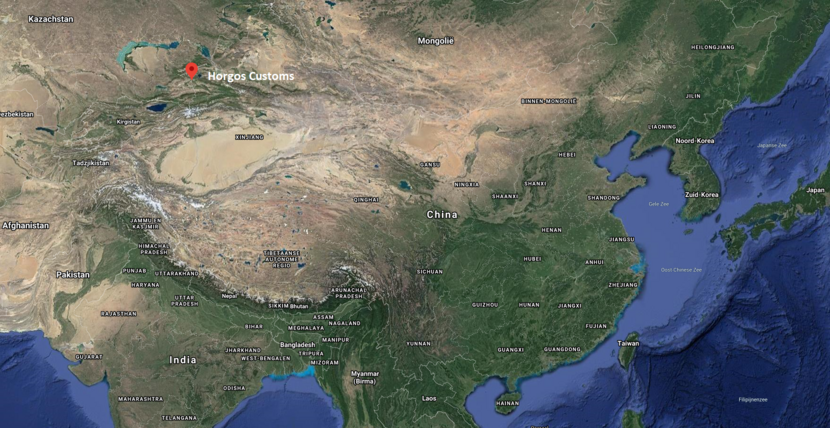China Agri News Week 19, 2020
This is the news overview of week 19 from the agricultural team of the Netherlands Embassy in Beijing.
Maersk opens China-Turkey rail service
Maersk has launched its first rail service from Xi’an, China to Izmit, Turkey, a new route that is part of Maersk's Intercontinental Rail service network. According to the group, the route will, in addition to shortening transit time, provide customers with wide network options connecting main locations in China and Turkey with a "diverse range of pre- and on-carriage services". The rail express service is set for weekly departures on each Tuesday (source: Asia Fruit).

Horgo Customs Supervise Nearly 60% of Fruit Exports Xinjiang
In the first quarter of 2020, Horgos Customs supervised the export of 19.600 tons of fruits and vegetables, accounting for 59.21% of the total exports of fruits and vegetables at the Xinjiang port, with a total value 171 million yuan. Green Channels allow for fast customs clearance and fast distribution tracks, and the fresh produce can be sold on the Kazakhstan market on the same day as it entered the country. Currently, the main export products are peppers, tomatoes, onions, and carrots (source, Chinese only: International Fruit).
New measures to Speed up Hog Production
The government of Qinghai implemented several measures to speed up the resumption of hog production. In the first quarter of this year, the province had 433 thousand pigs, of which 51,600 were capable of breeding sows, an increase of 7% in comparison to the last quarter of 2019. The provincial finance has arranged a special fund of nearly 72 billion yuan for the construction of 24 standardized pig farms, including the construction of 3 large-scale farms with an annual output of more than 100 thousand heads.
In addition, the government of Qinghai will also expand transportation facilities, upgrade the laboratory of the Animal Disease Prevention and Control Center in the county, configure professional testing equipment for African swine fever, and improve the detection capacity of pig production and transportation at the county level. When it comes to material, subsidies are allocated for agricultural machinery equipment such as automatic feeding, environmental control, epidemic prevention and waste disposal (Source, Chinese only: Farmers’Daily, May 6th).
E-Commerce Poverty-Stricken Counties Show Growth Against the Trend
On April 30, the Ministry of Commerce stated that in the first quarter of 2020, e-commerce in 832 rural poverty-stricken counties has realized growth against the trend. The total sales volume of online retail reached 56.56 billion yuan, an increase of 5% year-on-year. The online retail sales of agricultural products were 8.32 billion yuan, a year-on-year increase of nearly 50%. Since 2014, the government has been carrying in-depth e-commerce developments such as the establishment of logistical facilities, public services and talent training programs to help agricultural products go out of the villages and increase farmers income (source, Chinese only: People’s Daily).
Short News:
- On April 30th, the MARA information center released The 2020 National County Digital Agricultural and Rural E-commerce Development Report which pointed out that in 2019, the retail sales of 2083 counties across the country reached 3096.16 billion yuan, an increase of 23.5% year-on-year. The report also pointed out the characteristics of development, challenges, and predicted future development trends (source, Chinese only: Farmers’ Daily, May 1st).
- On April 28th ,Members of the Standing Committee of the National People's Congress conducted group meetings on the revised draft of the Animal Epidemic Prevention Law. It is expected to comprehensively improve animal health (Source, Chinese only: Farmers’ Daily, April 30th).
- On May 5th, New Hope announced that it will acquire all shares in Ningxia Xiajin Dairy, a leading dairy company in the Northwest region, at a total cost of 1.711 billion yuan (Source, Chinese only: China Dairy Association).